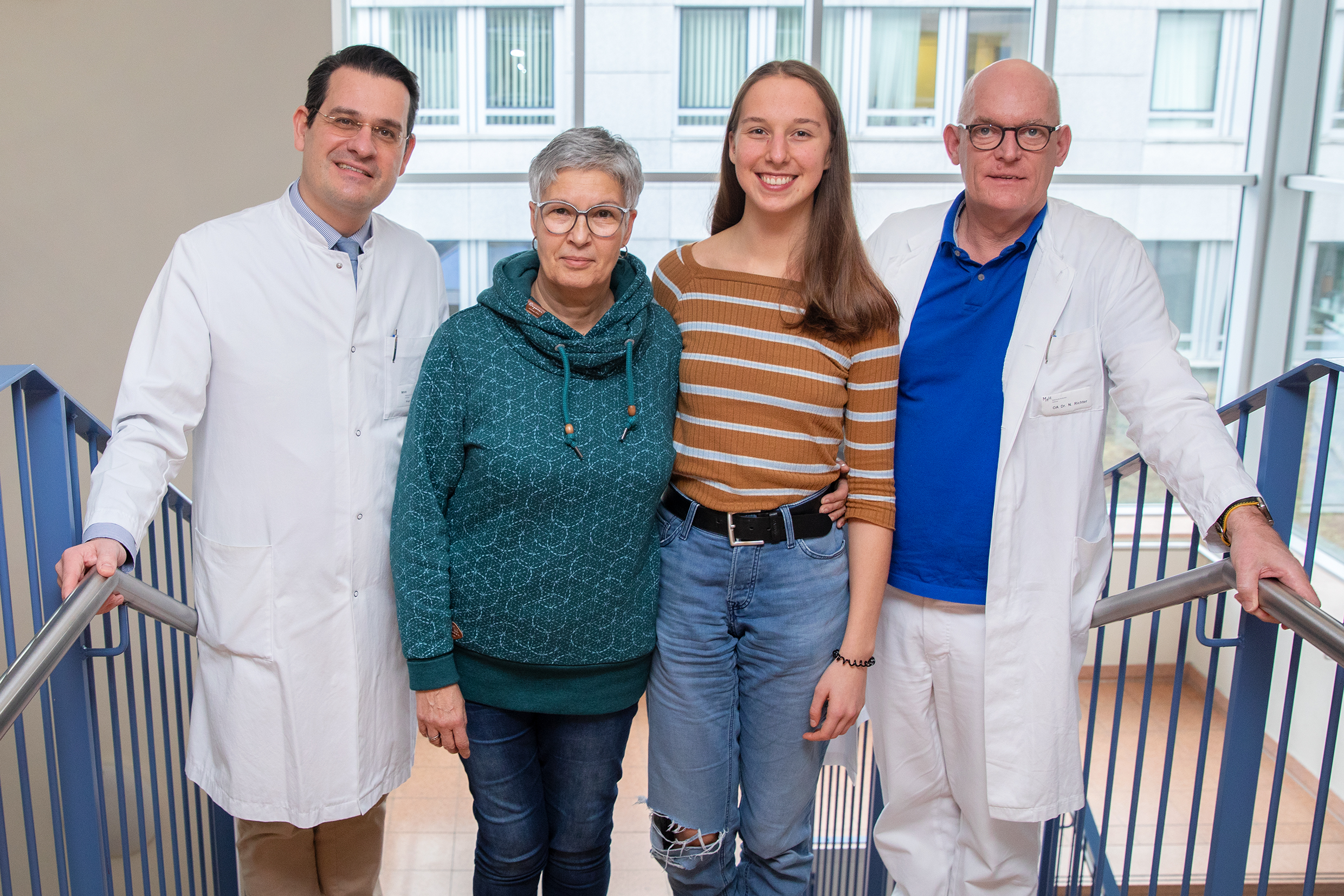In 2023, 345 organs were transplanted at MHH. The Tranplant Center would like to thank the organ donors and their relatives.

First living donation in 2024 (from left): Professor Moritz Schmelzle with grandmother Eva, who donated a kidney to her granddaughter Johanna, and surgeon Dr Nicolas Richter. Johanna has been suffering from a kidney disease for two years, which made the operation necessary. Copyright: Karin Kaiser/MHH
The gift of life: Hannover Medical School (MHH) transplanted 345 organs last year. 345 organs that were donated to save lives. "Without the willingness to donate, we would not be able to help our seriously ill patients," says Professor Dr. Moritz Schmelzle, Head of the Transplant Center and the Department of General, Visceral and Transplant Surgery. At MHH alone, more than 1,000 patients are waiting for an organ; in Germany there are around 8,400 in total. "On behalf of all the staff at the Transplant Center and on behalf of our patients, I would like to thank the organ donors and their families."
More transplants were performed in 2023 than in 2022
Last year, the number of organs donated nationwide rose by more than eight percent to 2,877. The number of transplants rose to 2,985 nationwide in 2023 and to 345 at the MHH: 19 hearts, 81 livers, 149 kidneys, 92 lungs and 4 pancreases. In comparison: In the previous year 2022, there were 314 transplants: 22 hearts, 70 livers, 138 kidneys, 80 lungs and 4 pancreases.
Just under twelve percent of the 345 organs in 2023 were transplanted into children and adolescents. 31 of the 149 transplanted kidneys and four transplanted livers came from living donors. Many people have contributed to the large number of transplants at the MHH and their long-term success. "Transplantation is teamwork. The good results of the transplants are also the result of the exemplary interprofessional cooperation at the center," emphasizes Professor Schmelzle.
Culture of gratitude
How can relatives of organ donors be thanked? The MHH Transplant Center supports the German Organ Transplantation Foundation (DSO) in supporting relatives beyond organ donation. It is important for relatives of organ donors to know how the organ recipients are doing after the transplant. The transplant center and the DSO provide anonymous information on the health status of the transplant recipient to the donor family.
Many recipients would like to "give something back" after a transplant and say thank you. This is possible by means of an anonymized thank-you letter, which is sent to the relatives via the center and the DSO. It is often a great comfort for the donor's family to know that the deceased was able to help other patients. With the consent of the transplant recipient, the DSO publishes anonymous thank-you letters on its Internet portal for thank-you letters.
Text: Camilla Mosel